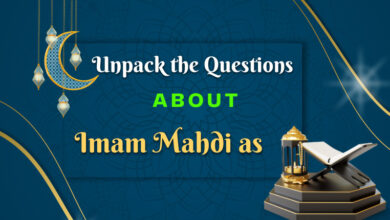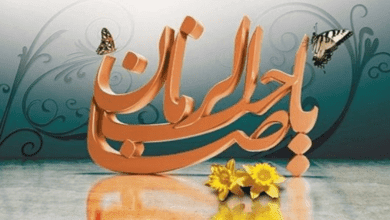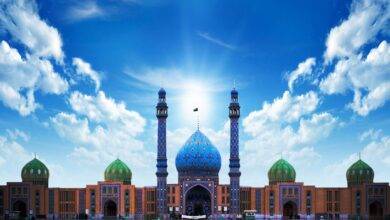Imam Mehdi: The Awaited Savior of Humanity

Imam Mehdi, also known as the “Mahdi” or the “Guided One,” is a significant figure in Islamic beliefs who is believed to be the ultimate savior of humanity. According to Islamic teachings, Imam Mehdi will appear during the end times to restore justice and peace to the world. This belief is shared by many Muslims around the world and is deeply rooted in Islamic tradition and scripture.
The concept of Imam Mehdi has been a source of inspiration and hope for Muslims for centuries, as they eagerly await his arrival. While the exact details of his appearance and actions are not known, the anticipation of his coming has fueled discussions, debates, and even movements throughout Islamic history. In this article, we will delve deeper into the beliefs surrounding Imam Mehdi, examining his significance and role in Islamic eschatology.
The Significance of Imam Mehdi in Islamic Beliefs
He is a central figure in Islamic eschatology and is considered to be the ultimate savior of humanity. The belief in his coming is rooted in Islamic scripture and tradition and is shared by many Muslims around the world. According to Islamic teachings, He will appear during the end times and will restore justice and peace to the world. His arrival is seen as a sign of hope and a promise of a better future for humanity.
The belief in Imam Mehdi has been a source of inspiration and comfort for Muslims throughout history. It has given them hope in times of hardship and has helped them remain steadfast in their faith. Muslims believe that Imam Mehdi will come to establish justice and eliminate oppression, and his arrival will mark the beginning of a new era of peace and prosperity.
He is seen as a unifying figure in Islamic beliefs, bringing together Muslims from different sects and backgrounds. His arrival is believed to be a time of unity and brotherhood, where all Muslims will come together under his leadership. This belief has played a significant role in Islamic history, inspiring movements and uprisings in different parts of the world.
The Prophecies about Imam Mehdi in Islamic Scriptures
The belief in Imam Mehdi is based on the teachings of the Prophet Muhammad and is rooted in Islamic scripture. There are numerous prophecies about his coming in Islamic texts, including the Hadith and the Quran. These prophecies describe the characteristics and qualities of Imam Mehdi and his role in the end times.
One of the most well-known prophecies about him is found in the Hadith, where the Prophet Muhammad is reported to have said, “Even if only a day remains for the world, God will send a man from the family of my house who will fill the earth with justice, just as it was filled with oppression.” This Hadith emphasizes the importance of justice in Islam and the role that Imam Mehdi will play in establishing it.
Another prophecy about him is found in the Quran, where it is mentioned that “We will show them Our signs in the horizons and within themselves until it becomes clear to them that it is the truth. But is it not sufficient concerning your Lord that He is, over all things, a Witness?” This verse is often interpreted as a reference to the coming of Imam Mehdi, who will bring with him clear signs and revelations that will prove the truth of Islam.
The Characteristics and Qualities of Imam Mehdi
According to Islamic teachings, he will possess certain characteristics and qualities that will distinguish him from others. He is believed to be a descendant of the Prophet Muhammad, specifically from the line of his daughter Fatima and his cousin Ali. He will be a just and righteous leader who will establish justice and eliminate oppression. He will be a man of great knowledge and wisdom, and he will be guided by God in all his actions.
He is also believed to possess supernatural powers, such as the ability to communicate with angels and perform miracles. He will be a charismatic leader who will attract followers from all over the world, and he will be able to unite Muslims under his leadership.
The Role of Imam Mehdi in the End Times
The role of Imam Mehdi in the end times is central to Islamic eschatology. According to Islamic teachings, he will appear during a time of great turmoil and chaos in the world, when oppression and injustice are widespread. His arrival will mark the beginning of a new era of peace and prosperity, where justice will prevail and people will live in harmony.
He is believed to play a key role in the establishment of the Islamic Caliphate, which will be a just and righteous government based on Islamic principles. He will also fight against the forces of evil and oppression, and his victory will mark the ultimate triumph of good over evil.
The Belief in Imam Mehdi among Different Sects of Islam
The belief in Imam Mehdi is shared by Muslims from different sects and backgrounds, although there are some differences in the interpretations of his role and characteristics. Sunni and Shia Muslims both believe in the coming of Imam Mehdi, although their beliefs about his lineage and role differ.
In Sunni Islam, Imam Mehdi is believed to be a descendant of the Prophet Muhammad, but his lineage is not specified. He is seen as a righteous leader who will establish justice and eliminate oppression, but his role in the establishment of the Islamic Caliphate is not as emphasized as it is in Shia Islam.
In Shia Islam, Imam Mehdi is believed to be a descendant of the Prophet Muhammad through his daughter Fatima and his cousin Ali. He is seen as a divinely appointed leader who will establish justice and eliminate oppression, and his role in the establishment of the Islamic Caliphate is emphasized.
The Signs of the Arrival of Imam Mehdi
The signs of the arrival of Imam Mehdi are described in Islamic scripture and tradition. These signs include natural disasters, political turmoil, and social unrest. It is believed that these signs will become more frequent and intense as the time of his arrival draws near.
Some of the signs of the arrival of Imam Mehdi include the appearance of the Sufyani, a tyrannical ruler who will spread oppression and corruption, and the emergence of the Dajjal, a false messiah who will deceive people with his miracles and false promises. The appearance of these figures is seen as a precursor to the arrival of Imam Mehdi.
The Importance of Preparing for the Arrival of Imam Mehdi
The belief in Imam Mehdi is not just a matter of faith for Muslims, but it also has practical implications. Muslims are encouraged to prepare themselves for his arrival by living a righteous life and striving for justice and peace in their communities. They are also encouraged to educate themselves about his teachings and to spread his message of justice and compassion.
Preparing for the arrival of Imam Mehdi also involves being aware of the signs of his coming and being vigilant against the forces of evil and oppression. Muslims are encouraged to be active in their communities, working to establish justice and eliminate oppression wherever it exists.
The Impact of the Belief in Imam Mehdi on the Muslim Community
The belief in Imam Mehdi has had a significant impact on the Muslim community throughout history. It has inspired movements and uprisings, and it has given Muslims hope in times of hardship and adversity. The belief in Imam Mehdi has also played a role in the formation of Islamic identity, uniting Muslims from different backgrounds under a common vision of justice and peace.
The belief in Imam Mehdi has also had practical implications for the Muslim community. It has encouraged Muslims to work for justice and peace, and it has provided a framework for social and political activism. Muslims who believe in Imam Mehdi are often at the forefront of movements for social justice and human rights, working to eliminate oppression and establish a just society.
Conclusion
Imam Mehdi is a significant figure in Islamic beliefs, representing hope and the promise of a better future for humanity. His arrival is eagerly awaited by Muslims around the world, who believe that he will restore justice and peace to the world.
The belief in Imam Mehdi has played a significant role in Islamic history, inspiring movements and uprisings, and it continues to have an impact on the Muslim community today. By preparing for his arrival and working to establish justice and eliminate oppression, Muslims are striving to create a better world for all of humanity.




